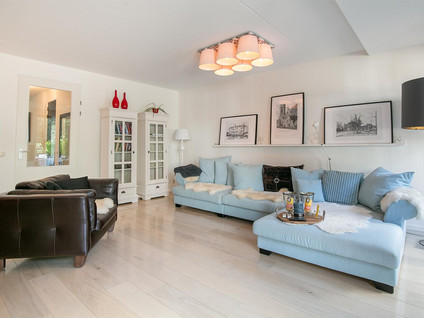Understanding Dutch rental contracts: everything you need to know
Published on October 28, 2024 by Alec Siemerink

When renting a home in the Netherlands, it’s essential to understand the terms of your rental contract. In this post, we’ll break down the key clauses you should look out for and explain tenant rights, deposit regulations, and how to avoid hidden fees before signing your lease.
Key terms to look out for
Rental contracts in the Netherlands can be complex, so it’s important to understand the key terms and conditions you’re agreeing to. Here are some of the main elements you’ll typically find in a rental agreement:
-
Duration of the lease
Dutch rental contracts often come in two forms: fixed-term and indefinite-term. A fixed-term contract has a clear start and end date, while an indefinite contract continues until either party decides to terminate it (with appropriate notice). If you’re unsure how long you’ll be staying, be careful about signing a fixed-term lease, as it may come with penalties for early termination. -
Rent price and adjustments
Make sure the contract clearly states the rent price and whether it includes utilities or other service costs. Be aware of annual rent adjustments, which are common in Dutch rental agreements. These adjustments are typically tied to inflation or government guidelines and should be outlined in the lease. -
Deposit regulations
Most landlords require a security deposit, usually equivalent to one or two months’ rent. By law, the deposit should be refunded at the end of the lease, provided there’s no damage to the property. Make sure the contract clearly outlines the conditions under which the deposit will be returned, and take photos of the property at move-in to avoid disputes later.
Tenant rights in the Netherlands
As a tenant, you have several legal protections under Dutch rental law. Some important rights include:
- Protection from Eviction: In most cases, landlords can’t terminate your lease without a valid legal reason. If you’re on an indefinite lease, you have strong protection from eviction as long as you comply with the contract.
- Maintenance and Repairs: Landlords are responsible for maintaining the property in a livable condition. This includes major repairs like plumbing or heating issues. Make sure your contract specifies the landlord’s responsibilities and how to report problems.
- Rent Protection: If you believe your rent is too high, you can appeal to the Dutch Rent Tribunal (Huurcommissie) to assess whether it’s reasonable based on the property’s condition and size.
Avoiding hidden fees
Some contracts may include hidden or unclear fees, so be sure to ask about:
- Service costs: These are additional charges for things like cleaning common areas, garbage collection, or maintenance. Ensure the contract clearly outlines what is included in these fees and how much they are.
- Agency fees: In the Netherlands, rental agencies are not allowed to charge tenants fees unless the tenant specifically hires the agency. Be cautious of agencies or landlords asking for extra fees outside of the deposit and rent.
For more details on what is allowed regarding costs in rental contracts, you can refer to the beleidsboeken provided by the Huurcommissie here. These guidelines offer clarity on permissible service costs, rent adjustments, and other important aspects of rental agreements.
Make sure to review all the terms carefully
Understanding your rental contract is key to avoiding surprises down the road. By knowing what to look for and what rights you have as a tenant, you can enter into your rental agreement with confidence. Make sure to review all the terms carefully and don’t hesitate to ask questions or seek legal advice if anything is unclear.
Before you sign your next rental contract, take the time to fully understand the terms and conditions so you can enjoy your new home with peace of mind.


